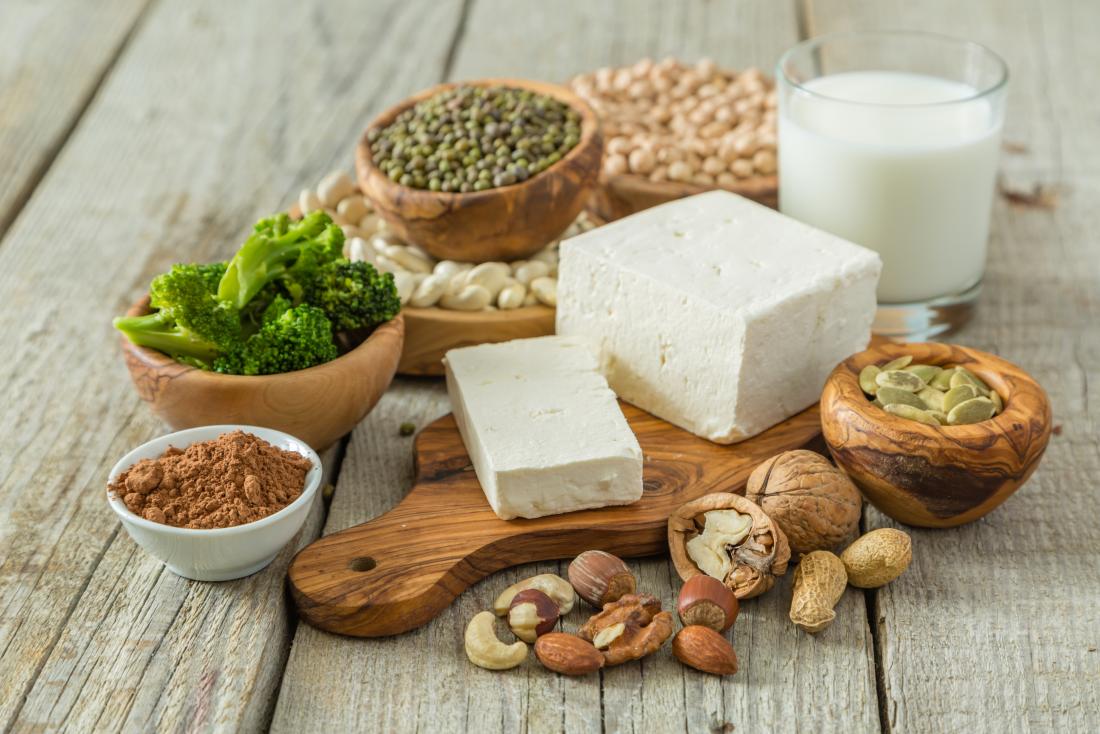
There are a number of nutritional issues that can arise from a vegetarian or vegan diet – in particular, vitamin B-12 and iron deficiencies, lack of iodine, and certain healthy long-chain fatty acids. In fact, you have to carefully balance your diet or take supplements in order to prevent such issues, yet most vegans and vegetarians never even think about them. Instead, what they’re asked about time and again is one specific macronutrient: protein. If you don’t eat meat, everyone wants to know, how can you ensure you get enough?
As any savvy vegetarian knows, it’s not actually that difficult to get enough protein on a plant-based diet, you just have to be a little more intentional about it.
These four foods are all excellent sources of protein and part of a balanced, vegetarian diets.
The Lacto-Ovo Approach
There are many types of vegetarian diets, ranging from lacto-ovo vegetarians who eat eggs and milk, as well as strict vegans, who don’t eat or use any animal products, including honey, leather, and even wool. For those on the less strict end of the spectrum, eggs and low-fat dairy products are both excellent sources of protein. A medium egg contains about 6.5 grams of protein, for example, while 100 grams of cheddar cheese contains 25 grams – as much as an equal amount of chicken breast.
Pea Power
If you’ve been paying attention to the meat alternative market in recent years, you may have noticed that many of the newest products to hit grocery store shelves are made from peas, and there’s a good reason for that. Of the many sources of plant-based protein, peas are the closest to containing a complete amino acid profile, which is important for meeting your dietary needs. As such, you can choose to either meet a proportion of your protein needs with peas themselves, or by choosing pea protein-based meat alternatives.
Super Supplements
While there are plenty of whole food sources of vegetarian protein, some people prefer to ensure they’re meeting their nutritional needs with the help of supplements, including protein powder. Plant-based protein powders containing multiple different protein sources, such as hemp, rice, and pea proteins, ensure that you get all the necessary amino acids to ensure your body is working its best.
Get A Bean Boost
Beans have a reputation for being a bit boring, but as vegetarian protein sources go, they’re one of the best, and they have an almost endless variety of culinary applications. Beans and lentils can be served with rice, in curries, as hummus or veggie burgers, and in countless other applications. Just switch up the accompanying vegetables or sauces, toss them in tacos or on pasta, and you’ll never get bored.
Know What You Need
While there are plenty of ways to meet your protein needs as a vegetarian, at the end of the day it’s also important to know how much protein you actually need. Many people believe they need more protein than they actually do and since our bodies can only use so much protein at a time, the excess is basically wasted. Most nutritionists estimate individual protein needs at 0.75 grams per kilogram, or a little more than a third of a gram per pound if you’re generally sedentary, while more actively individuals will require more protein. It’s not hard to meet those needs, even on a vegetarian or vegan diet, so there’s no need to stress about this part of your nutritional profile.